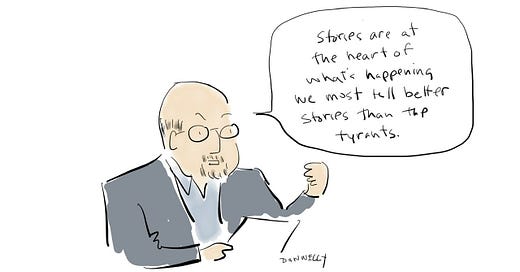Report: Salman Rushdie
Part 3: Did the U.S. respond to the assassination attempt? How is Rushdie? Now what happens?
This is the third in Autonomia’s series about Salman Rushdie, the writer condemned to death by Iran on February 14, 1989. Rushdie was savagely stabbed in the United States of America in August. Read the first report, about Rushdie, Iran and its mystic-dictator who ordered Rushdie’s assassination, here. Read the second article, about the death decree and the assassination attempt, here.
Has the U.S. responded to the assassination attempt on Salman Rushdie?
No. This is part of a pattern of American appeasement.
The August 12, 2022 assassination attempt on an American—Rushdie, who is also an American publisher’s contractor—was met with U.S. government silence. A statement by the current presidential administration’s chief executive, Joe Biden, released to the press under the title “on the Attack on Salman Rushdie,” is as generic as the heading. The Biden stateme…
Keep reading with a 7-day free trial
Subscribe to Autonomia to keep reading this post and get 7 days of free access to the full post archives.



